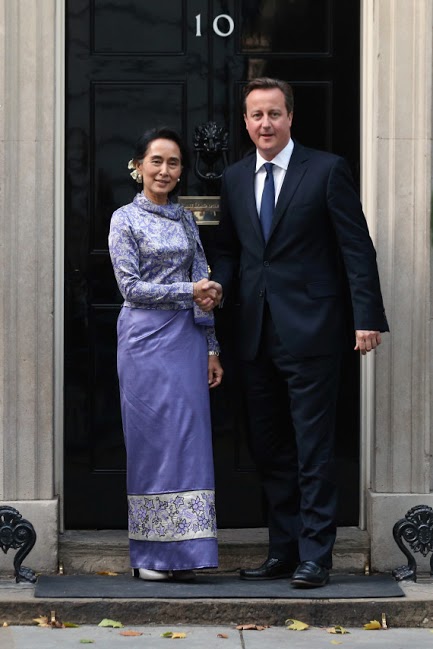Suu Kyi dismisses ethnic cleansing claims.
Pro-democracy campaigner and general secretary of the opposition National League for Democracy party Aung San Suu Kyi has dismissed claims of ethnic cleansing against Burma’s Royhinga Muslim minority. Speaking to the BBC’s Mishal Husain on 24 October, Suu Kyi responded to accusations by Human Rights Watch that government officials and local extremist groups were responsible for ethnic cleansing.
“It’s not ethnic cleansing,” said Suu Kyi, “What the world needs to understand [is] that the fear is not just on the side of the Muslims, but on the side of the Buddhists as well.” She conceded that “Muslims have been targeted,” but added that “also Buddhists have been subjected to violence”.
But the situation in Sittwe province, where much of the violence has been centred, shows a different picture. Though Muslims only constitute 4% of Burma’s estimated 60,000,000 citizen population, over 140,000 Muslims have been displaced, almost all removed from their homes, while the Buddhist majority remains largely unaffected.
When questioned on the causes of the violence, Suu Kyi said: “You, I think, will accept that there is a perception that Muslim power, global Muslim power, is very great and certainly that is the perception in many parts of the world, and in our country too.”
The Rohingya are an ethnic minority who make up only a small fraction of Burma’s Muslim population and are denied political power. Though they are granted ID cards, they are denied citizenship by the Burmese government.
“Everybody should be entitled to citizenship under the law as it is at present”, said Aung San Suu Kyi, but it is government restrictions that prevent the Rohingya from gaining citizenship.
Suu Kyi, a SOAS alumna, was awarded the Nobel Peace Prize in 1991 for her work promoting democracy in Burma. She was released from house arrest in 2010, having spent 15 of the 21 preceding years detained at home.
In a recent trip to the UK, she failed to meet with human rights groups or members of the Burmese diaspora. When asked whether she condemned the Buddhist monk Wirathu, who had described Muslims as “dogs”, she responded “I condemn hatred of any kind.” Similarly, she was asked to condemn violence against Muslims and answered: “I condemn any movement that is based on hatred and extremism.”
But Suu Kyi’s equivocal approach to the violence has drawn criticism from pro-Rohingya groups. Wakar Uddin, director general of the Arakan Rohingya Union, said her comments were “full of absurdity”. He added: “The violence in Myanmar has always been one-sided, where Rohingya and Myanmar Muslims are the victims.”
Suu Kyi was among those nominated to have the Students’ Union’s JCR named after her in a referendum last month.
Tom King

